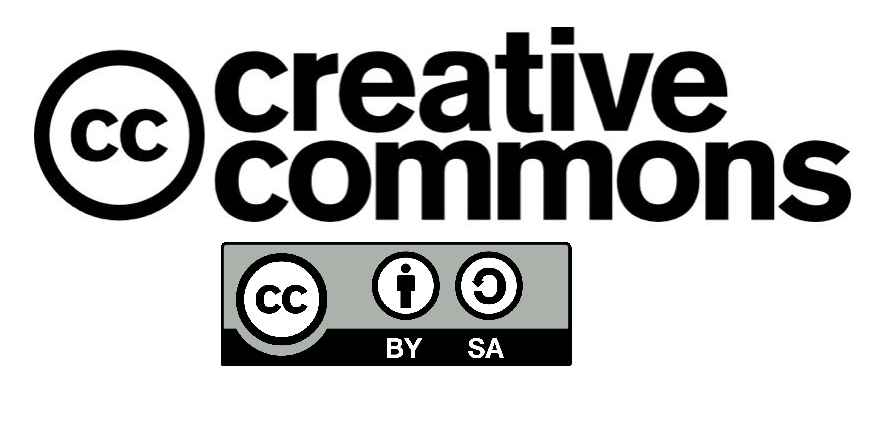Statement
USRATY : Journal of Islamic Family Law s is a peer-reviewed journal published by Universitas Islam Negeri Sjech M. Djamil Djambek Bukittinggi that is committed to upholding the highest standards of publication ethics and takes all possible measures against publication malpractice. This statement clarifies the ethical behavior of all parties involved in the act of publishing an article in this journal, including the author, the principal editor, associate editor, editorial board, reviewer and publisher. This statement is based on COPE Publication Ethics. Our responsibility is to publish original work of value to the intellectual community in the best possible form and to the highest possible standards. We expect similar standards from our reviewers and authors. Honesty, originality, and fair dealing on the part of authors, and fairness, objectivity, and confidentiality on the part of editors and reviewers are among the critical values that enable us to achieve our goal. USRATY : Journal of Islamic Family Law is committed to following best practices on ethical matters, errors, and retractions, and to providing a legal review if necessary.
Reviewers’ Responsibilities
Contribution to Editorial Decisions: Reviewers assist in improving the quality of the published paper and help the editor in decision-making.
If a selected reviewer feels that he or she does not have the necessary qualifications to evaluate the research of a manuscript or will not be able to complete the review in a timely manner, he or she should inform the editor and withdraw from the review process.
Confidentiality: Unpublished materials disclosed in a submitted manuscript must not be used in a reviewer’s own research without the express written consent of the author. Privileged information or ideas obtained through peer review must be kept confidential and not used for personal advantage.
Objectivity and Promptness: Reviews should be conducted objectively, and reviewers should complete their reviews in a timely manner. Personal criticism of the author is inappropriate. Referees should express their views clearly with supporting arguments.
Responding to Review Invitations: Reviewers should respond to invitations to peer review within a reasonable time frame, even if they are unable to undertake the review. If agreeing to review, they should only do so if they are confident of returning the review within the proposed or mutually agreed time frame. Reviewers should inform the journal promptly if circumstances change and they cannot fulfill their commitment or if they require an extension.
Disclosure of Conflicts of Interest: Reviewers must disclose to editors any relationships or activities that could bias their opinions of the manuscript. If a potential conflict of interest exists, reviewers should recuse themselves from the review process of specific manuscripts to maintain impartiality and integrity of the review.
Commenting on Ethical Issues and Research Misconduct: Reviewers are encouraged to comment on ethical questions and potential research misconduct raised by submissions. This includes, but is not limited to, unethical research designs, insufficient detail on consent and concerns about the originality of submissions.
Alertness to Redundant Publication and Plagiarism: Reviewers should be vigilant in identifying instances of redundant publication and plagiarism, and bring any such cases to the attention of the journal editor.
Editors’ Responsibilities
Declaration of competing interests: The editor must not be involved in decisions about papers which s/he has written him/herself or have been written by family members or which relate to products or services in which the editor has an interest.
Fair Play and Confidentiality: Editors should evaluate manuscripts for their intellectual content without regard to race, gender, sexual orientation, religious belief, ethnic origin, citizenship, or political philosophy of the authors. They must also maintain confidentiality of all information regarding submitted manuscripts.
Decision-Making and Editorial Independence: USRATY : Journal of Islamic Family Law Editorial Committee holds the responsibility of determining the articles that qualify for publication after a thorough review process. The decision must be based on the significance of the research to readers and researchers and on its validation. In making this decision, the Editorial Committee must adhere to the journal's policies and legal obligations regarding libel, plagiarism, and copyright infringement.
Ensuring a Fair, Unbiased, and Timely Peer Review Process: The editor shall ensure that the peer review process is fair, unbiased, and timely. Research articles must typically be reviewed by at least two external and independent reviewers, and where necessary, the editor should seek additional opinions.
Selection of Reviewers: The editor shall select reviewers who have suitable expertise in the relevant field, taking into account the need for appropriate, inclusive, and diverse representation.
Anonymity in Peer Review: The double-blind review process should be upheld to preserve the anonymity of reviewers.
Corresponding Author and Responsibilities
Primary Responsibility and Communication: The corresponding author is the single individual who takes primary responsibility for communication with the journal during the manuscript submission, peer review, and publication process. This includes ensuring that all documentation and requirements for submission are complete, and all co-authors are in agreement with the content and submission of the manuscript.
Availability and Timeliness: The corresponding author must be available throughout the submission and peer-review process to respond promptly to editorial queries. This responsibility extends post-publication, requiring the corresponding author to be available to respond to critiques of the work and cooperate with any requests from the journal for data or additional information, should questions about the paper arise after publication.
Representation of Co-Authors: The corresponding author represents all co-authors throughout the publication process and is responsible for ensuring that all co-authors are informed about and agree to changes in the publication process, including the handling of revisions and the approval of the final proof.
Procedure on Unethical Behavior, Penalties, and Sanctions
Investigation Process: Allegations of unethical behavior such as plagiarism; stolen, fabricated or falsified data; disputes involving multiple authors, groups, institutions, and countries; and undisclosed conflicts of interest will be taken seriously and investigated thoroughly. The journal will follow a fair and unbiased process to assess the situation.
Penalties and Sanctions: If unethical behavior is confirmed, the journal may impose sanctions, including, but not limited to, publishing an erratum or retraction, informing the author's institution, and barring the author from publishing in the journal.
Ethical Guidelines for Human Subjects Research: Research involving human subjects must adhere to ethical standards, including obtaining informed consent, ensuring privacy, and following guidelines for ethical conduct in human research.
Privacy and Informed Consent for Publication
Respecting Privacy: Authors must respect the privacy and confidentiality of research participants and must not disclose any information that might identify them, unless expressly given permission.
Informed Consent: For studies involving human subjects, authors must provide evidence of informed consent and approval by an institutional review board or ethics committee, where applicable.
Ethics on Post-Publication
Authors should promptly notify the journal editor or publisher if they discover any significant errors or inaccuracies in their work after publication.
Corrections and Retractions: If errors are identified post-publication, the journal will publish corrections, clarifications, retractions, or apologies as needed.
Responsibility for Post-Publication Communications: The corresponding author is responsible for responding to any queries about the published work and cooperating with any post-publication audits.
Promotion of Ethical Standards
USRATY : Journal of Islamic Family Law is dedicated to promoting the highest ethical standards in its operations and research publication.








